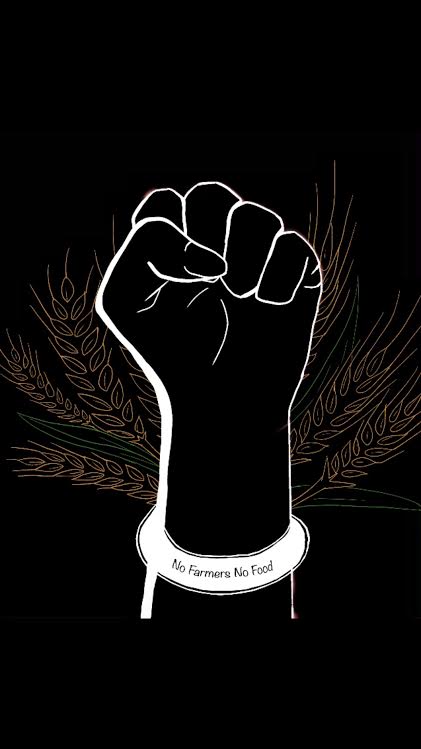Why are Farmers in India protesting?
March 21, 2021
In September of 2020, the Indian government legislated new agricultural bills. Each of the three laws deregulates a distinct mode of the agricultural system: the sale, pricing, and accommodation of goods. They allow farmers to sell their goods to private buyers outside the state-run markets and create a system for contract farming. Together, the laws reduce the government’s role in agriculture and open up spaces for private investors. The three farm laws consist of the following:
- The Farmers Produce Trade and Commerce Bill, which employs non-restricted inter-state trade while also providing a foundation for e-trading of agriculture produce.
- The Farmers ( Empowerment and Protection) Agreement on Price Assurance and Farm Services Bill, which promotes contract farming and direct marketing.
- The Essential Commodities Bill deregulates the production, storage, movement, and sale of several major foodstuffs, except in the case of certain circumstances.
However, these reforms have caused turmoil amongst farmers. Many farmers argue that the laws will allow big companies to drive down prices. While farmers could sell crops at higher prices if the demand is there, conversely, they could struggle to meet the minimum when there is too much supply. With the three farm laws in place, farmers could face potential exploitation in the future from the government, corporations, moneylenders, and commission agents without allowing farmers any power of choice and decision over the compensation for their produce. This can also eventually lead to financial depredation for farmers.
For decades, the Indian government has allowed guaranteed prices to farmers for certain crops, making a stable process to make decisions and investments for the following crop harvest. Under the previous laws, farmers sold their goods at auctions at their state’s Agricultural Produce Market, where they were guaranteed to receive at least the government-approved minimum price. But these new laws will disassemble this firm structure, instead allowing farmers to sell their goods to anyone for any price.
Beginning in November 2020, with attempts of peaceful resistance, farmers from agriculture-focused states, like Punjab and Haryana, began marching to the capital to pressure the government to repeal the laws and register their dissent with them.
The protests are still continuing, and tens of thousands of farmers have been living in tents at makeshift camps pitched on highways outside India’s capital, New Delhi. Large roadblocks placed by the police and protected with barbed wire stand a few hundred meters from the camps, preventing the farmers from invading the center of Delhi.
Selma High Senior Jashan Gill’s uncle has visited the protest camps and illustrates them. “A lot of people were there, the road was closed, and kids were also there.” Additionally, he adds, “Farming is a generational thing and it gets passed down to the parent’s kids, so this is not only a question of present-day but of the future.”
The Indian government’s response to further counter or tame such protests has resorted to a plethora of violence-filled measures. Everything from police brutality, tear gas, water cannons, abrasion, arbitrary arrests, the spread of misinformation, media censorship, and much more has occurred. Through the lens of the Indian government, they contemplate that these reforms are necessitated to modernize the country’s agricultural industry.
Farmers have received worldwide acts of solidarity within diaspora communities protesting on their behalf in the U.S, U.K, Canada, and Australia. Overall more than 250 million others, worldwide, have displayed their support—resulting in the largest organized strike in human history.
“It’s hard seeing some of my family there protesting and fighting for their rights while the most we can do, here, is donate and stay aware about the situation.” Navinder Sekhon, a junior at Selma High, further elucidated on this issue.
Government leaders have failed to reach an alliance or compromise with leaders of more than 30 farmers’ unions despite months of negotiation. With negotiations between the government and the farmers’ unions at a halt, the protests don’t appear to be ending anytime soon.
In mid-January, India’s Supreme Court momentarily suspended the laws, hoping the farmers might agree and negotiate with the farm bills. Later on, the government stated that it was willing to suspend the laws for another 12 to 18 months, while they worked with farmers’ unions to endeavor a long-term compromise.
The farmers are still protesting and vowing not to leave until the laws are fully repealed.
To donate, visit https://www.khalsaaid.org/news/farmers-protest-2020










Yasmine • Mar 26, 2021 at 2:20 pm
I really enjoyed how informative your article is! You really made sure to make the readers understand exactly what is going on without confusion. Adding on, this is such an important topic that is needed to be heard more and you did a wonderful job expressing the importance ! I also really enjoyed how you had a list to clarify to make other understand easily.
CHLOE • Mar 26, 2021 at 10:57 am
Great article Lovleen! your knack for news stories is so noticeable. Your command of the language was so powerful and concise, and I feel so much more knowledgeable about the Farmer’s Protest in India, and I am very glad about that. I am especially impressed with your primary news sources and quotes. Keep up the good work!
Jashan Gill • Mar 25, 2021 at 8:28 pm
Wonderful job on this article!! You were very thorough with why the farmers are protesting in India! We all hope for the farms laws to get repealed!
bella • Mar 24, 2021 at 1:21 pm
Super informative article Loveleen! Class disparities and lower/working class exploitation is so real and we can see that with these laws. I hope that the Indian government will gain perspective in the time that the laws are suspended. Im also so glad that farmers are taking the situation into their own hands in fighting for their rights and not compromising on something that is proving to be so detrimental to their livelihood. I also agree with Navinder in the frustration of watching from overseas, not being able to do much to make a difference.
Simran • Mar 23, 2021 at 9:57 pm
First off this is a great article. I hope that the Indian government is able to see how detrimental their actions are towards farmers, the backbone of the country. It shocks me how little the support and respect the Indian government (and many prominent Indian celebrities) has towards farmers.